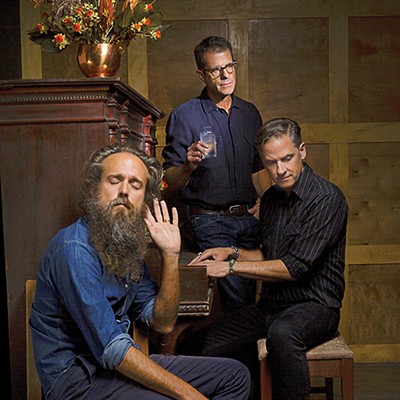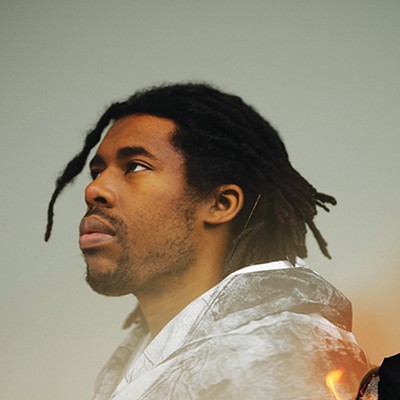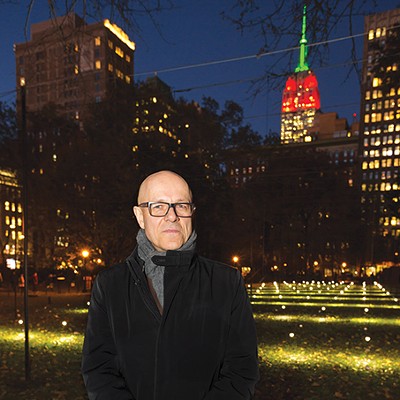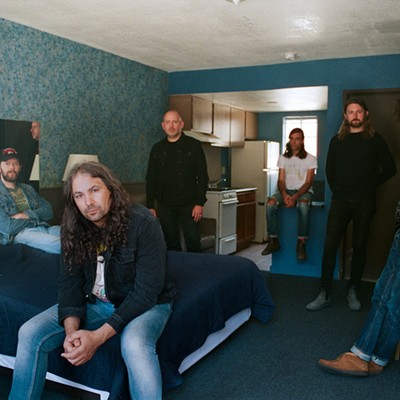El Pintor is an anagram, a clever rearrangement of Interpol that just so happens to translate to “the painter” in Spanish.
But there’s just as much meaning to the very jumble of those letters than the shrewd, titular phrase for Interpol’s fifth studio album in and of itself, a nod to an internal reorganization the now-trio has endured between present day and the release of their self-titled record back in 2010.
That album was the second straight outing by the alt-rock heavyweight that was met with mixed reception (following 2007’s Our Love to Admire), and burnt-out founding bassist Carlos Dengler ushered himself to the exit almost as soon as it was finished.
“There’s a clue on that record as to what was going on,” drummer Sam Fogarino said. “It had that sort of temperament — our relationship was kind of smeared all over that record.”
Four years later, things couldn’t be much better. The 10th anniversary of their seminal Turn on the Bright Lights — the album that jump-started a post-punk revival in the mid-2000s and partially defined indie rock of that era — came and went. Meanwhile, the celebration and rerelease of the album seemed to shrink the imposing shadow of that monumental moment in the band’s catalog into something more manageable, for Interpol and its fans alike.
It was also a reminder of what this music means to the fans and what the opportunity to make it for them means to its three remaining members. The current lineup — Fogarino, frontman Paul Banks and guitarist Daniel Kessler — wants to be here dearly, and with a yearlong break to pursue outside projects and solo endeavors, Interpol stepped into El Pintor with a clear head and renewed creative potency.
“There was a sigh of relief, you know? We just wanted to continue on, and it makes a big difference when there’s someone there who has lost their affinity for it,” Fogarino said. “[We were] ready to get back to it without any obstacles. Things feel different; the light is shining on us in a different way.”
There’s an ease to El Pintor that has been missing for some time, and Fogarino doesn’t dismiss the notion that the album represents something of a rebirth. It’s a sentiment that has followed much of the reception to the new album, greeted with some of the best reviews of Interpol’s career since 2004’s Antics.
“It’s the honesty, the way it was written, that shines through,” Fogarino said. “No one was afraid to just get on and do it and not over-intellectualize what was happening. It has a lot more feel and is a lot more immediate and visceral for it.
It was more of the air being breathable, and that’s kind of what it was centered around.”
There’s no rush or expectations for the years ahead. Touring in support of El Pintor will take up much of 2015, and there’s another break in store after that. But even without the specifics plotted out, Interpol’s prospects have never been so clear. Out of the dark, the lights are back on, shining bright as ever.
“It’s good to take it from here. People are on our side right now, and in that sense, it’s been a nice pat on the back — or even a shove, like, ‘Keep moving. You won’t fall,’” Fogarino said. “The future is wide open. It’s a good feeling.”
Print headline:
Rebirth certificate













